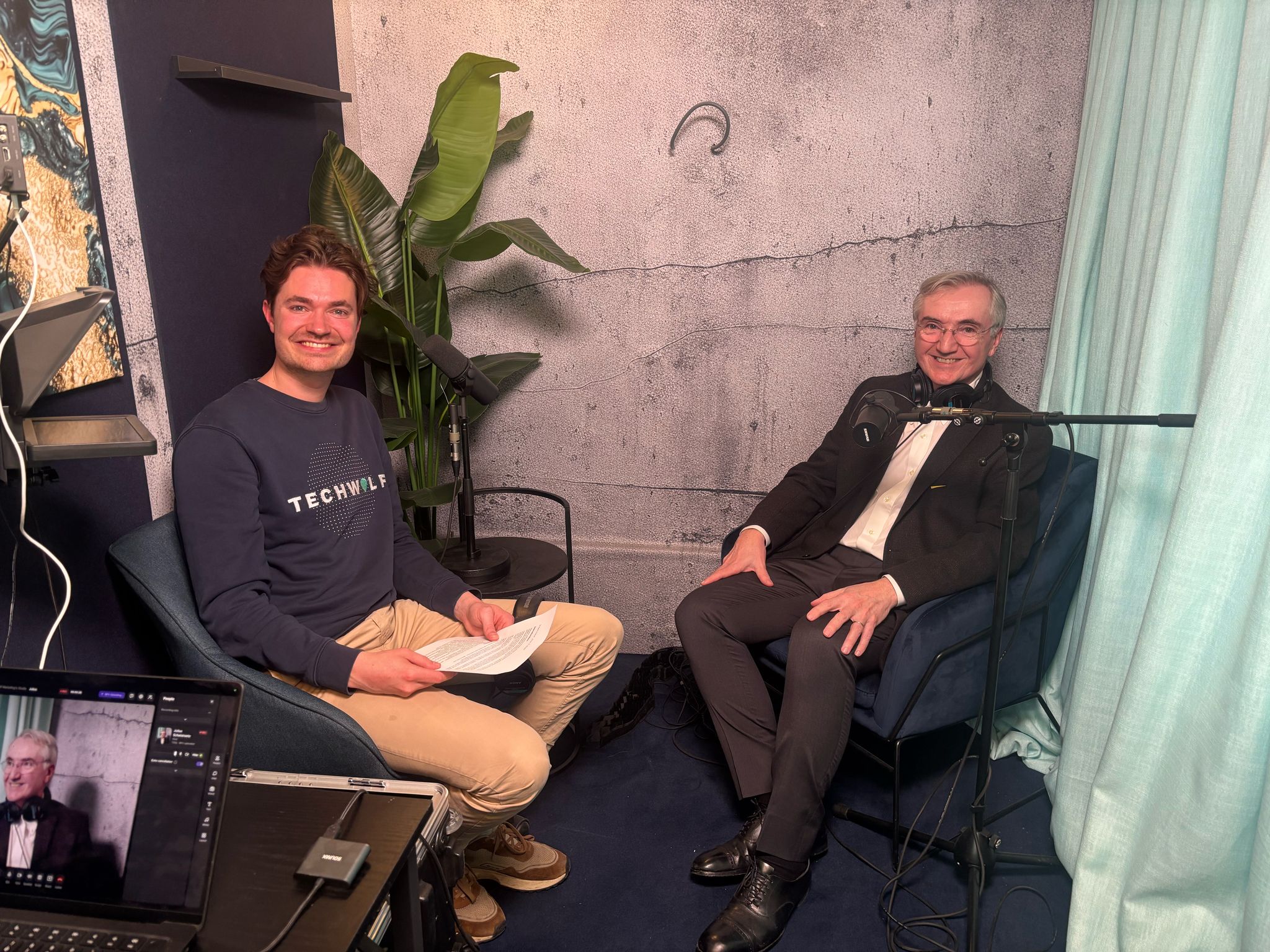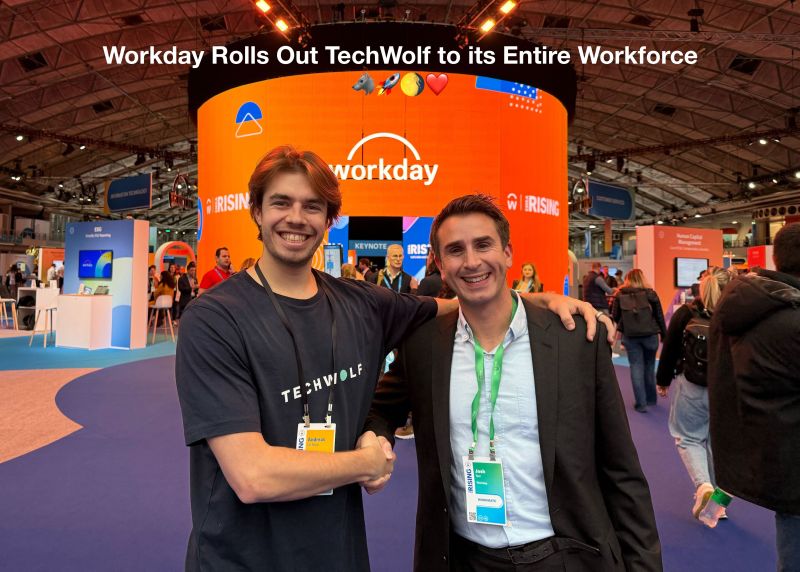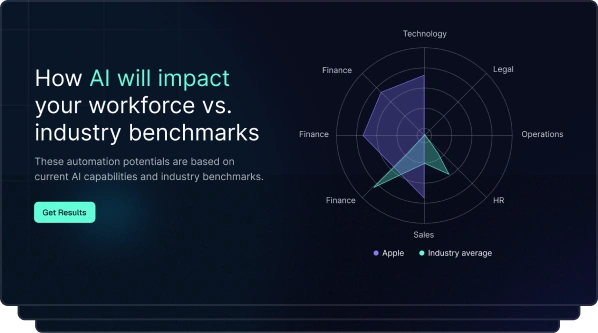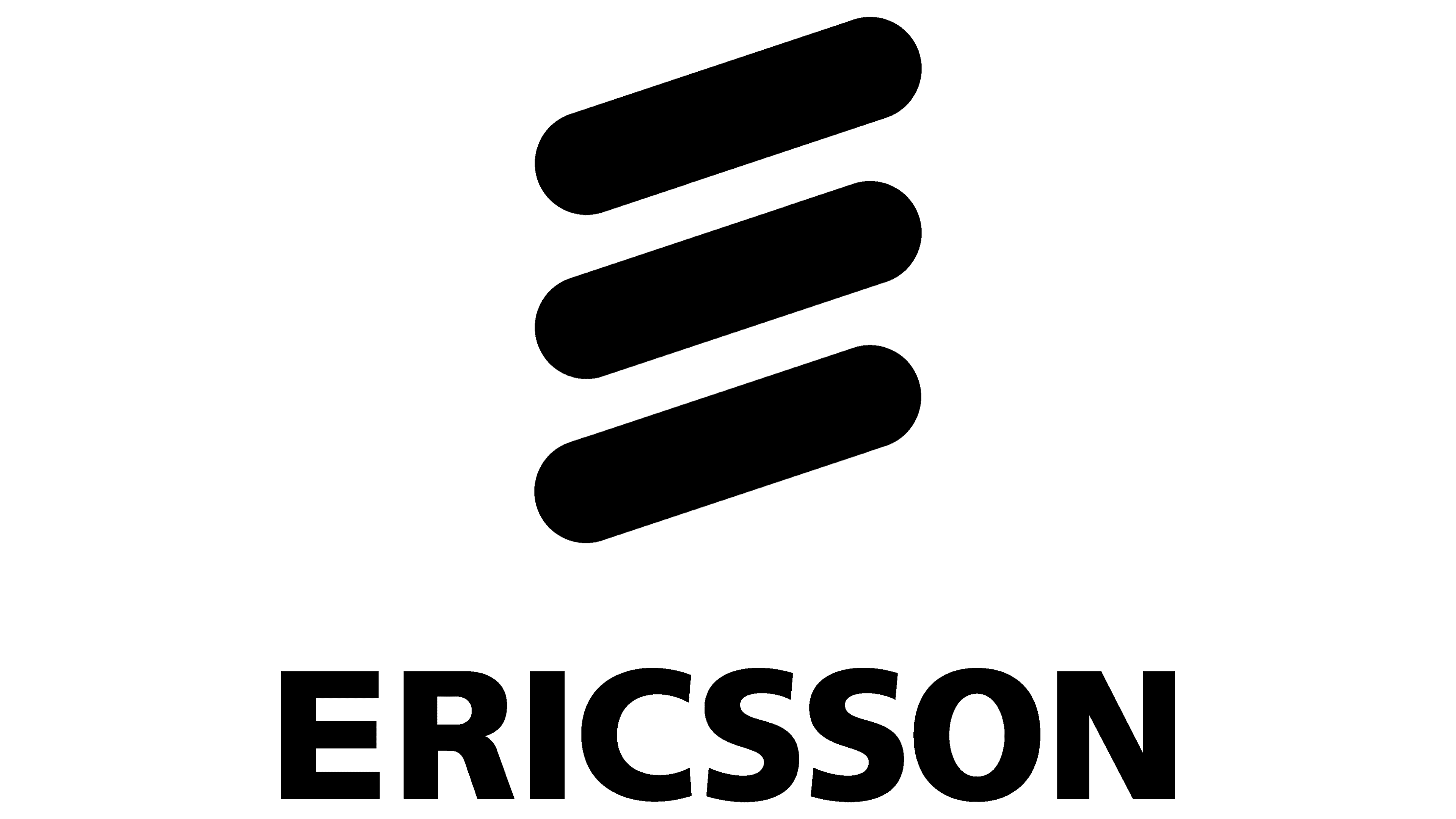Learn fast or fall behind: Harvard’s Joseph Fuller on HR’s AI wake-up call

TL;DR
AI is as fundamental a technology for this decade as the arrival of alternating current was in the 19th century.
Harvard professor Joseph Fuller doesn’t mince words.
For HR leaders, his warning is clear: AI will change work faster than most organizations are prepared for.
The challenge isn’t just technical, it’s cultural. HR has been wired to move carefully. But in the AI era, Fuller argues, the greater risk is moving too slowly.
Meet Joseph Fuller: Harvard’s voice on the future of work
Joseph Fuller is Professor of Management Practice at Harvard Business School and co-leads the Managing the Future of Work project. A former Monitor Group CEO, he’s spent decades studying the dynamics between talent, technology, and productivity. In his conversation with TechWolf’s Julius Schelstraete, Fuller unpacked why skills-based transformation is lagging and how HR can finally make it real.
1. HR’s caution DNA is holding it back
In the first half of our episode with Joe, he dropped a powerful statement:
Historically, in HR functions, the correct stance is to be cautious. These are people and their lives we’re dealing with. But given the productivity unlock that AI will create, the greater risk will be going slower than your competitor.
Fuller sees a paradox: HR’s instinct for risk avoidance, which is meant to protect people, is now preventing progress. The safe approach has become unsafe.
AI’s learning curve rewards speed: “They with the most data that use it fastest win.” Companies that delay experimentation with AI in talent management risk falling permanently behind.
At TechWolf, we guide our customers to treat AI adoption like a strategic transformation, not a tech pilot.
The new competitive advantage isn’t who has the biggest workforce; it’s who learns fastest about their workforce.
2. Skills-based HR: still an aspiration, not a reality
Skills-based organizations are still more an aspiration than a reality. The tools to mobilize the organization on a skills basis are only now being understood.
Fuller describes the skills-based model as a fundamental shift from proxies (degrees, titles, tenure) to reality: what people can actually do. Yet, most job descriptions still rely on outdated credentials that don’t reflect true capability.
AI can help rewrite this playbook, identifying the skills embedded in work, not just the qualifications on paper.
The shift requires courage and clean data. Our customers are already showing what’s possible:
- Atlas Copco Group, Ericsson, and Workday built a skills foundation within months, not years, using TechWolf.
- Early results:
- Improved quality and diversity in new hires (Atlas Copco Group)
- 75%+ of employees upskilled in critical skills (Ericsson)
- 39% decrease in new hires performing below expectations (Workday)
3. Why skills momentum is finally building
The ferocity of the market has made skills-based transformation an operational necessity.
I almost missed this quote during the recording of our podcast with Joe, but it perfectly sums up our recent findings that with AI transforming the workforce, HR problems = business problems.
For years, skills were HR’s favorite buzzword but not a business priority. That’s changing fast. Fuller points to two forces driving adoption:
- Competitive pressure: Rapid market shifts are forcing companies to mobilize talent faster.
- Economic pressure: Shareholders and boards are demanding productivity gains without mass hiring.
At TechWolf, we’re helping drive 50+ skills strategies across the world’s biggest employers. Our main learning:
The “skills-based organization” only lands when it solves a measurable and urgent business challenge.
And now, for the first time, with challenges like AI-driven workforce redesign or turnover cost reduction, the #1 business challenge is an HR challenge.
4. AI won’t yet replace people; it will redefine work
AI removes recurring cognitive tasks, often the ones people like least. What’s left are the social and leadership elements that can’t be automated.
Fuller’s view counters the fear narrative. AI won’t just automate, it will augment. It will melt away routine tasks (“the ice flow”) and expose what’s most human in work: empathy, creativity, judgment.
But he’s clear-eyed about disruption. Productivity gains of 40%+ across 900 occupations will inevitably reshape roles. The difference between thriving and shrinking organizations will come down to how fast they redesign work, not how long they resist.
The best CHROs we work with aren’t fighting automation; they’re quantifying its impact.
At TechWolf, we want to counter the same fearmongering prevalent in mass media and global organizations. That’s why we launched our public Work Intelligence Index, assessing the impact of AI on the jobs & tasks of the 1500 biggest companies in the world.
The aggregated findings?
- 58% of employee tasks remain human-judgment work
- 40% is AI augmentable now
- 2% is fully automatable
At the moment, the majority of the opportunity lies not in replacing humans, but in the human-AI partnership.
As a result, work intelligence - understanding what work is being done, by whom, and how it’s changing - is the new superpower.
5. The CHRO’s invitation to the top table
CHROs who are listening to us, this is your opportunity. This is the invitation to the top table.
For decades, HR has been seen as compliance and culture. AI gives CHROs the chance to become strategic operators. Fuller’s challenge is bold: stop being retrospective partners, start being anticipatory architects.
With command of skills data, what you have, what you need, and what’s emerging, HR can finally guide the business through workforce transformation with confidence.
Diane Gherson, former IBM CHRO and member of our TechWolf board, says this is HR’s “Frederick Taylor moment”: a chance to redesign work intentionally.
With the right data and courage to experiment, CHROs can lead organizations through the AI era instead of reacting to it.
Closing thought: learn fast or fall behind
Fuller’s message lands with urgency:
If you’re late and slow to learn, you’ll fall further and further behind.
🎧 Listen to the full conversation with Professor Joseph Fuller on The TechWolf Podcast to explore how AI, skills, and strategy intersect to unlock people's productivity.
📈 Explore next:
- How Workday and TechWolf Are Leading the Skills-Based Movement
- Workday Rising SF’25 – TechWolf’s Top 5 Takeaways
- The TechWolf Work Intelligence Index: a data-driven view of how AI is changing work.
Blog
From guides to whitepapers, we’ve got everything you need to master job-to-skill profiles.


Why “skills-first” projects are failing, and what actually works


How Workday Scaled Skills to 20,000 Employees with TechWolf











.svg.png)






.jpg)




